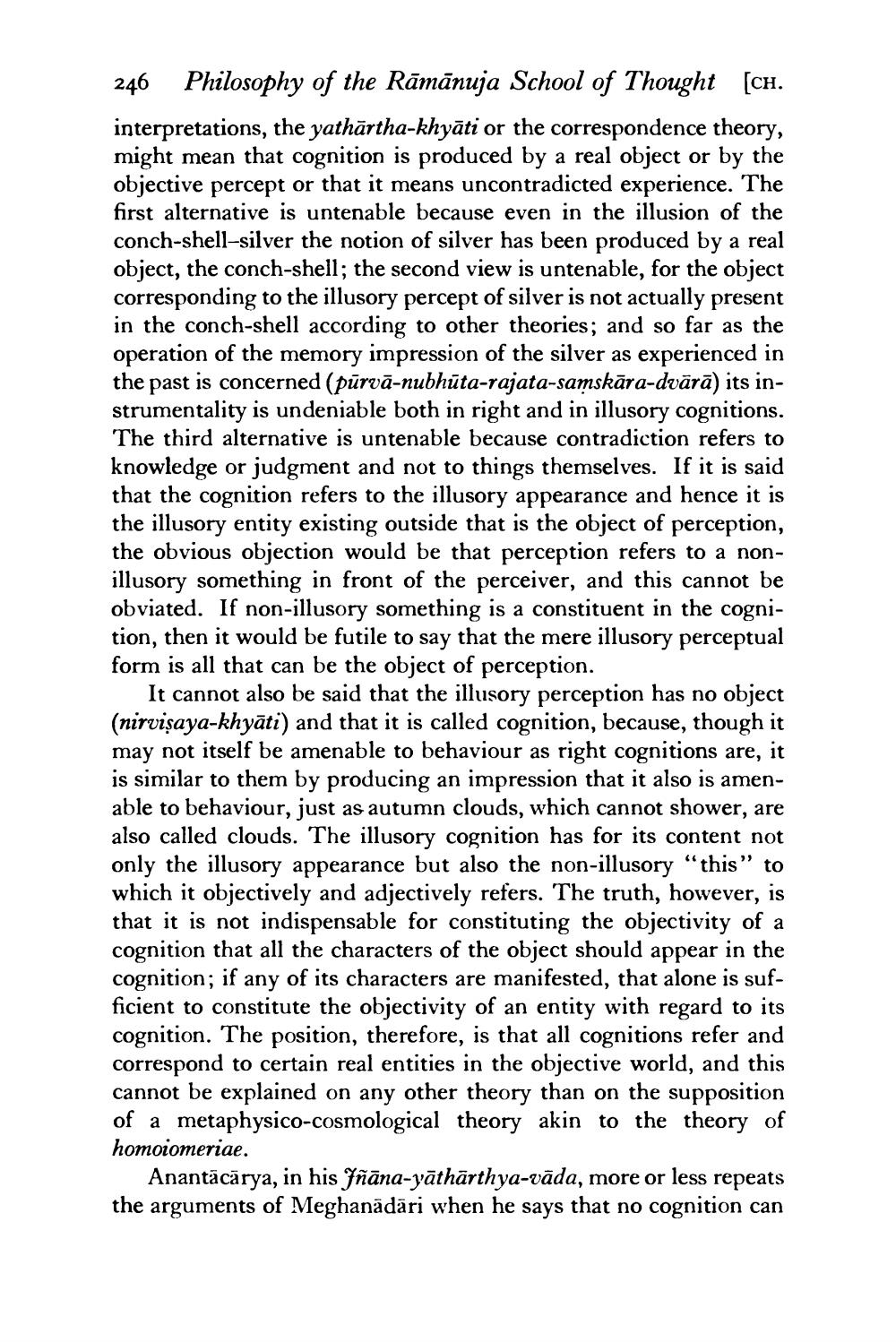________________
246 Philosophy of the Rāmānuja School of Thought [CH. interpretations, the yathārtha-khyāti or the correspondence theory, might mean that cognition is produced by a real object or by the objective percept or that it means uncontradicted experience. The first alternative is untenable because even in the illusion of the conch-shell-silver the notion of silver has been produced by a real object, the conch-shell; the second view is untenable, for the object corresponding to the illusory percept of silver is not actually present in the conch-shell according to other theories; and so far as the operation of the memory impression of the silver as experienced in the past is concerned (pūrvā-nubhūta-rajata-samskāra-dvārā) its instrumentality is undeniable both in right and in illusory cognitions. The third alternative is untenable because contradiction refers to knowledge or judgment and not to things themselves. If it is said that the cognition refers to the illusory appearance and hence it is the illusory entity existing outside that is the object of perception, the obvious objection would be that perception refers to a nonillusory something in front of the perceiver, and this cannot be obviated. If non-illusory something is a constituent in the cognition, then it would be futile to say that the mere illusory perceptual form is all that can be the object of perception.
It cannot also be said that the illusory perception has no object (nirvişaya-khyāti) and that it is called cognition, because, though it may not itself be amenable to behaviour as right cognitions are, it is similar to them by producing an impression that it also is amenable to behaviour, just as autumn clouds, which cannot shower, are also called clouds. The illusory cognition has for its content not only the illusory appearance but also the non-illusory "this" to which it objectively and adjectively refers. The truth, however, is that it is not indispensable for constituting the objectivity of a cognition that all the characters of the object should appear in the cognition; if any of its characters are manifested, that alone is sufficient to constitute the objectivity of an entity with regard to its cognition. The position, therefore, is that all cognitions refer and correspond to certain real entities in the objective world, and this cannot be explained on any other theory than on the supposition of a metaphysico-cosmological theory akin to the theory of homoiomeriae.
Anantācārya, in his jñāna-yāthārthya-vāda, more or less repeats the arguments of Meghanādāri when he says that no cognition can




